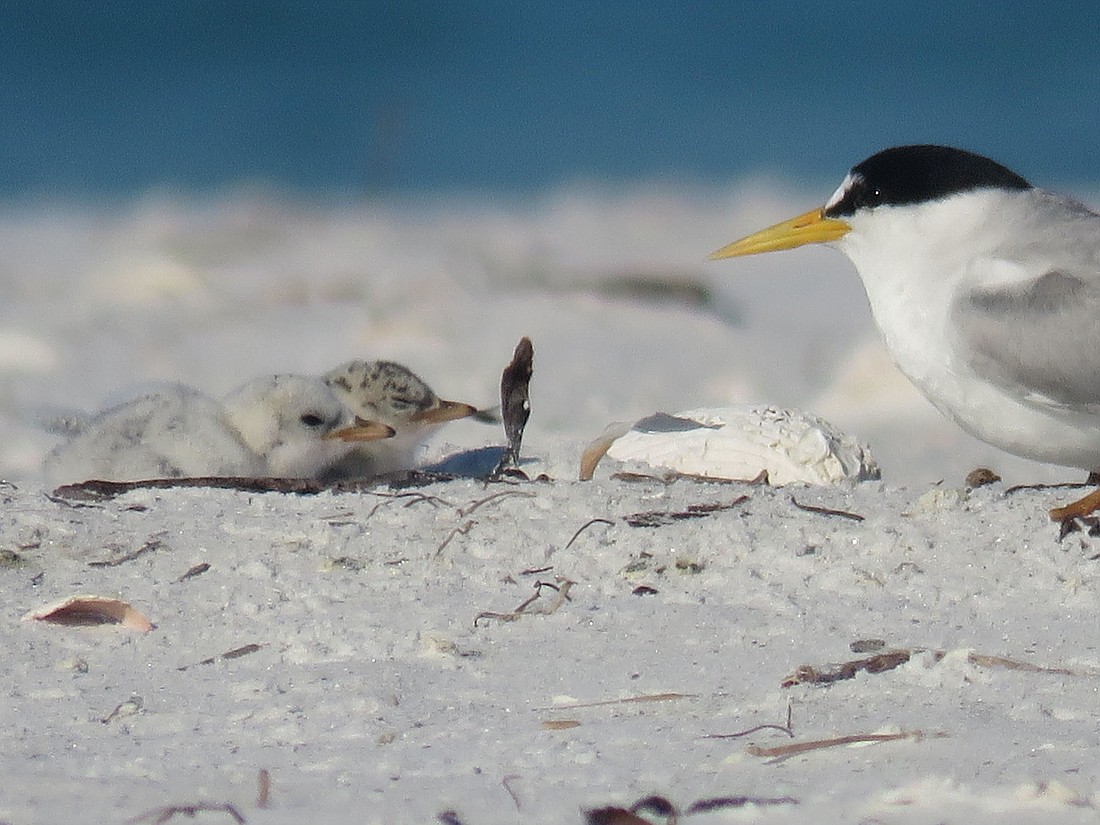- January 23, 2025
-
-
Loading

Loading

Although closures and cancellations because of COVID-19 have caused many postponed vacations, shorebirds are making their way back to Sarasota County beaches a few weeks early.
Kylie Wilson, the shorebird program coordinator for Audubon Florida, said she found the county’s first snowy plover nest March 27. They typically begin arriving in mid-April.
“I think because of the lack of people, they were able to nest sooner,” Wilson said. “Normally, spring break keeps things pretty difficult for them on the beach because they get a lot of disturbance.”
However, since the county closed all its beaches to the public by March 21 to help stop the spread of coronavirus, the birds have had the sand all to themselves.
Humans can cause a variety of problems for shorebirds by walking over their nesting area or by feeding them. Research from the Florida Fish and Wildlife Conservation Commission says shorebirds are particularly sensitive to human disturbance.
For example, one dog passing a nest can cause the birds to leave their nests exposed to the hot sun.
Without people on the beach, Wilson said the birds have more area to walk and less stress.
Now, Wilson has turned her attention away from people monitoring to minimizing natural threats, such as predators like crows and ghost crabs.
“That’s also helped by a lack of people at the beach because people tend to draw predators,” Wilson said. “By leaving trash, they attract crows and raccoons and things like that.”
In the past three years, the snowy plovers that have nested on Sarasota beaches have not had a chick reach maturity. Chicks have hatched on Longboat Key in the past three years, but they didn’t live long enough to fly.
“Normally the birds don’t have any space near the water because people are walking back and forth,” Wilson said. “With no people on the beach, they’re sitting and cooling off in the water. The lack of disturbance can hopefully increase their nesting productivity.”
Wilson said there are 10 or 11 snowy plovers on Siesta Key and four on Lido Key, which is typically the maximum number of snowy plovers that nest in Sarasota. One pair of birds is nesting while others are pairing off.
She hopes to see other species, such as black skimmers and least terns, arrive in the next month.
Although the conditions are better for the birds, the beach closures have caused the Audubon Society to temporarily cancel its volunteer program.
Wilson worries if beaches reopen without signage to protect nests, a successful nesting season might be ruined.
If the beaches do reopen during nesting season, Wilson said there are several things beachgoers can do to help ensure the safety of the birds, such as not feeding or chasing them.
The FWC says people also should not enter areas posted with shorebird signs, avoid driving the upper beach, keep dogs away from the beach and property dispose of their trash when leaving the beach.